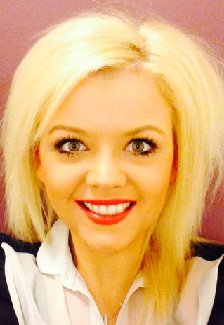
Rachel, another graduate from The Robert Gordon University who focusses on sports, exercise and weight loss psychology, thrives when working to help others. This is what she has to share with you:
“I have always had an interest in helping others, even from when I was at a young age my mother always said that when other people were sad or upset I was the first to try and make them feel better. Throughout my childhood, my interest in working in a position of care and health developed more and more changing every so often from wanting to be a nurse, to a veterinarian, a teacher to finally choosing a degree in Sports and Exercise Science; which maybe won the edge with my sporting background in netball and being an avid football and golf fan.
Alongside learning at university, I also began looking more closely into the psychological principles one goes through during weight loss and then when they are, successfully or not, attempting to manage their weight.
Being a certified weight management counsellor has stemmed my interest in the area of psychology and I am now currently working towards gaining further qualifications in the area. Not only does the way we think and why we do so interest me greatly, but I feel it is an area of ourselves that very much gets sacrificed in the terms of healthcare. Often you hear of people going to the gym, monitoring their diet or stopping smoking – but very rarely do you hear a person say ‘Right, today I will take care of my mind.’ It is very much an area forgotten about or possibly just not considered as one that can use extra help from time to time. It is one of my personal aims of Global Health Promotions to help get rid of this stigma, that asking for help with your thoughts or how to get through those difficult times is okay and in fact, very sensible. If your leg were to be broken and you decided not to go to the doctor, you decide to just ‘get on with things and everything will come okay in time’ then most people would say you were insane! They wouldn’t tell you to ‘just deal with it’, would they? No. So why must it be different with your mind? It can become broken too. It’s a disorder, not a weakness.
One of the most important aspects of this job for me is to help people realise that health isn’t just the absence of disease but a state of complete ‘physical, mental and social wellbeing’. It is not just my aim to help people in all areas of health, but to help people enjoy health and to realise that learning about it is not something to fear.”
